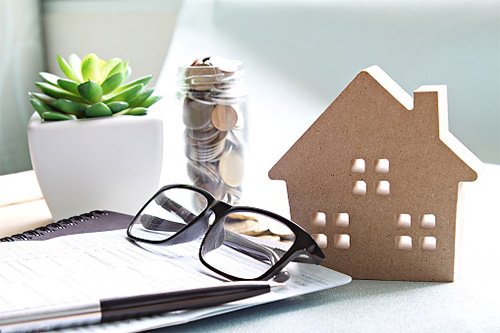Owning a home is a beautiful thing — but it’s an expensive one, too! When you make the choice to buy your first home, you alter the course of your financial future. The good news is that, generally speaking, buying a home can help your financial situation in the long run: Instead of wasting money on rent, you’ll be putting equity into a valuable asset. But whether and how much a home purchase improves your financial future depends, to a large degree, on your decision-making and how well you handle the opportunities and challenges that come with owning your own home. Here is everything that you need to know in order to maximize your wealth as a homeowner.

Maximizing your tax savings
Buying a home changes a lot about your life. Some of those ways are obvious in the ways in which they affect your daily reality. Others are things that you’ll be less likely to think about. One significant difference between your pre- and post-home ownership life will be your tax situation.
Unless you’re an accountant or an auditor, you probably don’t spend a lot of time thinking about taxes. After you buy a home, though, you should pay attention — and should probably hire a tax expert to help you navigate your new tax situation, at least for the first year. You want to be sure that you’re maximizing your home-related deductions and not giving Uncle Sam a penny more than you’re legally obligated to!
Mortgages and refinancing
You almost certainly didn’t pay cash for your home, which means that you have a mortgage to pay every month. Be sure to pay your mortgage on time every month and keep up with your finances in order to keep the debt financially healthy! Do that over and over for years, and you’ll eventually own your home free and clear.
At some point, though, you may want to consider taking a second look at the mortgage you’re paying every month. Depending on the interest rates and your long-term plans, you could be better off refinancing.
The benefits of refinancing a home loan are obvious: Refinancing at the right time will lower your interest rate (it can also give you access to the equity that you’ve already put into your home loan). However, there is an up-front cost to refinancing, so it will only be worth it if you stay in your home (and, therefore, keep paying off the loan) for long enough for the savings you gained from the lower interest rate to outweigh what you paid in refinancing costs.
Maintenance and long-term value
Eventually, you may want to sell your home. Even if you don’t, you’ll certainly want it to be as beautiful and as function (not to mention as valuable) as possible. But that takes work!
Whether you’re a new homeowner or have lived in your house for years, you need to remember that maintenance is crucial. A home’s value can deteriorate fast if its owner doesn’t stay on top of seasonal maintenance chores and move quickly to address repair needs.
Energy upgrades
Your home is packed with essential appliance systems that maintain your comfort. Your electricity, your plumbing, your heat — these all help make a house a home. But these systems cost money to use.
How much you pay in energy in your home will depend, to a great extent, on your home itself. If you invest in attic insulation, new windows, and other improvements that keep inside air in and outside air out, then you’ll pay less for your HVAC system each month. Maintenance and repair to your electrical and plumbing systems, as well as efficiency improvements like fluorescent light bulbs and low-flow toilets, can make a huge difference in your bottom line.
To read more on topics like this, check out the finance category.